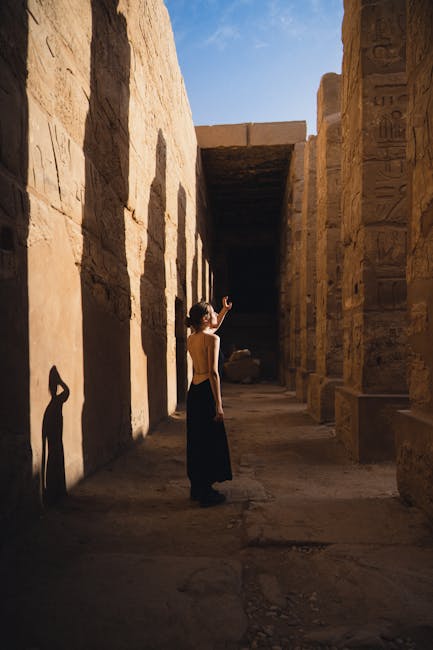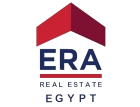Introduction
Overview of Property Management in Egypt
Property management in Egypt has witnessed significant changes over the years, evolving from rudimentary practices to a more structured profession. With a growing population and urbanization, the demand for housing and commercial spaces has soared, prompting the need for efficient management solutions.
Some key aspects include:
- Market Growth: The real estate sector has become one of the fastest-growing industries in Egypt.
- Diverse Portfolio: Property managers handle a variety of assets, from residential to commercial properties.
- Certified Professionals: The increase in certified property managers has elevated service standards, as seen with the rise of organizations like ERA Egypt.

Evolution of Property Management Expertise
Initially, property management involved a hands-on approach where owners directly handled their properties. However, today’s landscape demands specialized knowledge and skills. The introduction of formal training programs has equipped professionals with essential expertise in:
- Legal Compliance: Understanding rental laws and regulations.
- Financial Management: Budgeting and forecasting expenses.
- Tenant Relations: Strategies for enhancing tenant satisfaction.
This evolution has not only improved operational efficiency but has also contributed to the overall growth of the real estate market in Egypt.

Historical Perspective
Property Management Practices in Ancient Egypt
The roots of property management in Egypt extend deep into its rich history, as ancient Egyptians employed various practices that laid the groundwork for today’s standards. This era saw land management primarily handled by the state and wealthy landlords.
Some notable practices included:
- Agricultural Management: Large estates required meticulous oversight to maximize agricultural productivity.
- Estate Managers: Individuals were appointed to oversee these properties, ensuring efficient operation and maintenance.
- Royal Oversight: Pharaohs often exercised control over lands, ensuring that taxes were collected and resources were allocated effectively.
Influence of Foreign Occupation on Property Management
As Egypt faced various foreign occupations, including the Greeks, Romans, and Ottomans, property management practices evolved significantly. Each regime introduced its own systems and regulations, influencing local practices.
Key impacts included:
- Legal Frameworks: Foreign rulers established new laws governing property rights and tenancy.
- Cultural Integration: Blending of foreign and local practices led to more sophisticated management styles.
- Urban Development: The introduction of urban planning concepts transformed property management in cities like Alexandria.
These historical shifts have left a lasting mark on Egyptian property management, setting the stage for modern practices we see today.

Modernization of Property Management
Introduction of Industry Regulations
As Egypt’s real estate sector thrived, the need for standardized property management practices became evident. Therefore, industry regulations were introduced to safeguard both investors and tenants, ensuring a balanced relationship.
Some core regulations include:
- Licensing Requirements: Property managers now need certifications, ensuring they meet specific educational and ethical standards.
- Tenant Rights: Enhanced laws protect tenants from unjust evictions and promote fair rental practices.
- Financial Transparency: Regulations demand regular financial reporting, maintaining trust between property owners and managers.
Impact of Technology on Property Management
Technology has revolutionized property management in Egypt, streamlining tasks and enhancing communication. Today, property managers utilize various tools to manage their portfolios efficiently.
Key technological advancements include:
- Property Management Software: These platforms simplify tracking rent payments and maintenance requests.
- Online Marketing: Listings are now promoted through social media and websites, increasing visibility.
- Smart Home Technology: Features like automated security systems and energy-efficient appliances attract modern tenants, enhancing their living experience.
This modernization not only increases efficiency but also aligns property management practices with global standards, ultimately benefiting the Egyptian real estate market.
Role of Property Managers
Responsibilities in the Egyptian Market
In today’s dynamic real estate environment, the role of property managers in Egypt is pivotal. They not only ensure the smooth operation of properties but also foster strong relationships between owners and tenants.
Key responsibilities include:
- Property Oversight: Managing maintenance, repairs, and overall property upkeep.
- Financial Management: Overseeing budgets, processing rent collections, and managing expenses.
- Tenant Engagement: Addressing tenant inquiries, resolving disputes, and maintaining high satisfaction levels.
- Marketing: Promoting vacant properties using digital platforms to attract potential renters.
Skills and Qualifications Required
To thrive in the Egyptian property management sector, professionals must possess a unique blend of skills and qualifications.
Essential skills include:
- Communication: Clear and effective communication is crucial for managing relationships.
- Negotiation: The ability to negotiate lease agreements and resolve conflicts is vital.
- Analytical Skills: Property managers need to analyze market trends and financial reports.
Qualifications often include:
- Educational Background: A degree in real estate, business management, or a related field.
- Certification: Obtaining certifications from established entities, such as a certified property manager designation, bolsters credibility.
With the right blend of expertise and qualifications, property managers play an essential role in shaping the future of property management in Egypt. Certified Property Manager (CPM®) designation.
Challenges in Property Management
Legal and Regulatory Challenges
While the real estate market in Egypt is booming, property managers face daunting legal and regulatory challenges that can complicate operations. The intricacies of Egyptian law, particularly regarding real estate, can be quite overwhelming.
Some common legal hurdles include:
- Complex Rental Laws: Navigating the labyrinth of landlord-tenant laws can lead to misunderstandings and disputes.
- Eviction Processes: The eviction process is often lengthy and cumbersome, making it difficult to manage non-compliant tenants.
- Compliance Requirements: Staying up to date with changing regulations can be time-consuming and requires continuous education.
Economic Factors Affecting Property Management
Moreover, economic fluctuations present additional challenges in property management. Economic stability directly impacts tenant demand and rental rates.
A few significant economic factors include:
- Inflation Rates: Rising costs can affect maintenance budgets and overall profitability.
- Job Market Conditions: Unemployment or job instability can result in increased vacancy rates as tenants struggle to pay rent.
- Foreign Investment: Changes in foreign investment levels can influence property values and the competitive landscape.
Understanding and effectively navigating these challenges are crucial for property managers to succeed in Egypt’s evolving real estate market.

Future Trends in Property Management
Sustainability Practices in Property Management
As global awareness regarding environmental issues rises, sustainability practices are becoming increasingly vital in property management. Egyptian property managers are recognizing the benefits not just for the environment, but also for enhancing property value and tenant satisfaction.
Key sustainable practices include:
- Energy-Efficient Designs: Implementing green building techniques that reduce energy consumption.
- Water Conservation Measures: Installing water-saving fixtures to address the increasing demand for limited resources.
- Waste Management Programs: Promoting recycling initiatives within properties to minimize waste.
These practices not only help the planet but also appeal to eco-conscious renters, creating a competitive edge in the market.
Integration of Smart Technologies
Alongside sustainability, the integration of smart technologies is revolutionizing property management in Egypt. From improving efficiency to creating enhanced living experiences, the demand is growing for smart building solutions.
Key integrations include:
- Smart Home Devices: Features such as smart thermostats and security systems are increasingly sought after by tenants.
- Property Management Software: Utilizing advanced software for seamless communication and maintenance request tracking.
- IoT Solutions: Internet of Things devices can monitor and manage energy usage, further elevating sustainability efforts.
The future of property management in Egypt undoubtedly lies in embracing these trends, preparing property managers for a more efficient and tenant-focused approach.

Success Stories in Egyptian Property Management
Case Study 1: Improving Property Value
One exciting success story in Egyptian property management comes from a residential building in Cairo that underwent a significant refurbishment. The property managers recognized that enhancing the building’s value required both aesthetic upgrades and structural improvements.
Key initiatives included:
- Modern Renovations: Updating common areas and individual units with contemporary designs increased market appeal.
- Sustainable Practices: Installing energy-efficient lighting and HVAC systems reduced operational costs.
- Enhanced Security Features: Adding surveillance cameras and secure entry systems attracted higher-end tenants.
As a result, the property’s value appreciated by over 30% within a year, demonstrating how strategic management can lead to substantial returns.
Case Study 2: Enhancing Tenant Satisfaction
Another remarkable example focuses on a commercial property in Alexandria that faced high turnover rates. To address this, property managers implemented a tenant engagement program aimed at fostering community and satisfaction.
Their approach included:
- Regular Feedback Surveys: This enabled management to address tenant concerns proactively.
- Community Events: Organizing networking events facilitated better relationships among tenants and improved overall satisfaction.
- Responsive Maintenance Teams: Ensuring quick and efficient handling of maintenance requests built trust and loyalty.
These initiatives transformed tenant satisfaction levels, resulting in a remarkable 40% decrease in turnover, showcasing the critical link between tenant happiness and property management success in Egypt.
Conclusion
Recap of Evolution of Property Management
Reflecting on the evolution of property management in Egypt, it’s clear that this field has undergone remarkable transformations. From ancient practices focused on agricultural estates to the modern, technology-driven approaches we see today, property management has adapted to meet the needs of evolving markets. The introduction of industry regulations and the emphasis on sustainability highlight the sector’s ongoing commitment to improvement and professionalism.
The Future Outlook for Property Management in Egypt
Looking forward, the future of property management in Egypt appears promising. With trends leaning towards sustainability and smart technology integration, property managers are poised to enhance efficiency and tenant experience further.
Key predictions for the future include:
- Increased Investment in Green Buildings: A rising demand for eco-friendly properties.
- Greater Use of Technology: Enhanced property management software and IoT solutions becoming standard.
These shifts will not only improve operational efficiencies but also attract a new generation of environmentally-conscious renters, ensuring a vibrant and sustainable future for property management in Egypt.
Book Your call with ERA’s Expert Now!
Q&A Section
What is a Certified Property Manager (CPM®)?
A CPM® is a real estate professional who has completed rigorous coursework and demonstrated real-world experience in managing residential, commercial, or industrial properties, accredited by the Institute of Real Estate Management advantagepropertymgmt.comnar.realtor.Why hire a Certified Property Manager?
Certified managers maximize property value, maintain legal compliance, streamline financial reporting, and elevate tenant satisfaction—ultimately boosting ROI and minimizing risks.How do I become a Certified Property Manager?
Candidates complete a series of IREM courses on ethics, asset management, marketing, and more, then pass the CPM® exam. The process typically takes 12–24 months, depending on prior experience.What qualifications and skills are required?
Essential skills include communication, negotiation, analytical reporting, and a degree in real estate or business. Certification prerequisites often mandate a specific number of years in property management and continuing education.How much does certification cost and how long does it take?
Total costs vary by region but generally range from $2,500 to $4,000 USD for courses and exam fees. On average, candidates spend 18–24 months to complete the program.Is the CPM® designation recognized in Egypt?
While IREM is U.S.-based, its CPM® certification is internationally respected. Many Egyptian firms partner with IREM or integrate its standards into local training programs—boosting credibility and networking opportunities.How does CPM® certification benefit tenants?
Tenants enjoy faster maintenance responses, transparent financial reporting, and professionally managed living environments, resulting in higher satisfaction and longer lease renewals.

